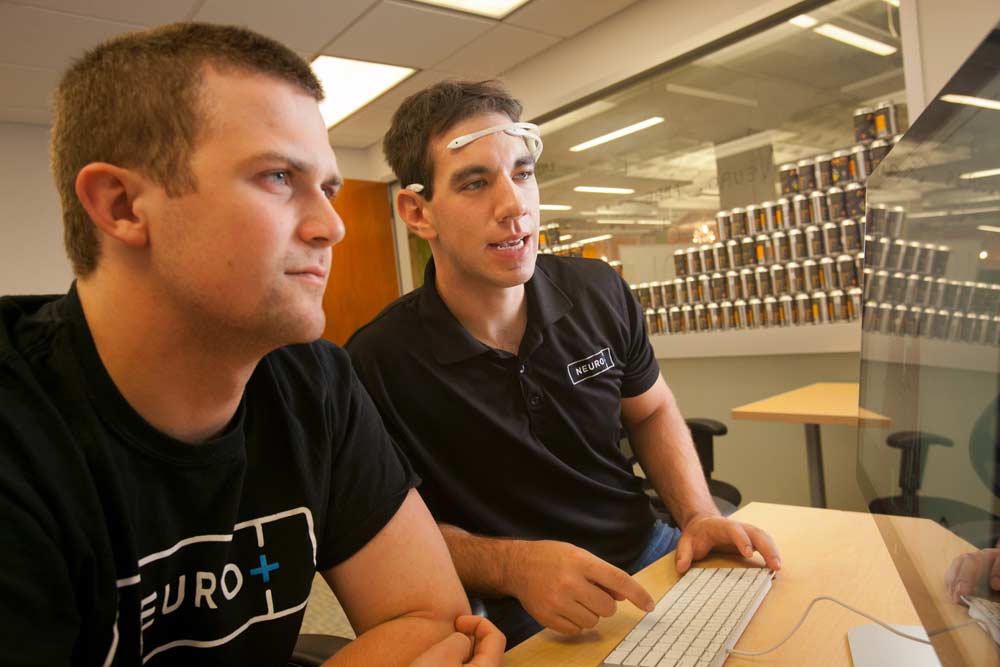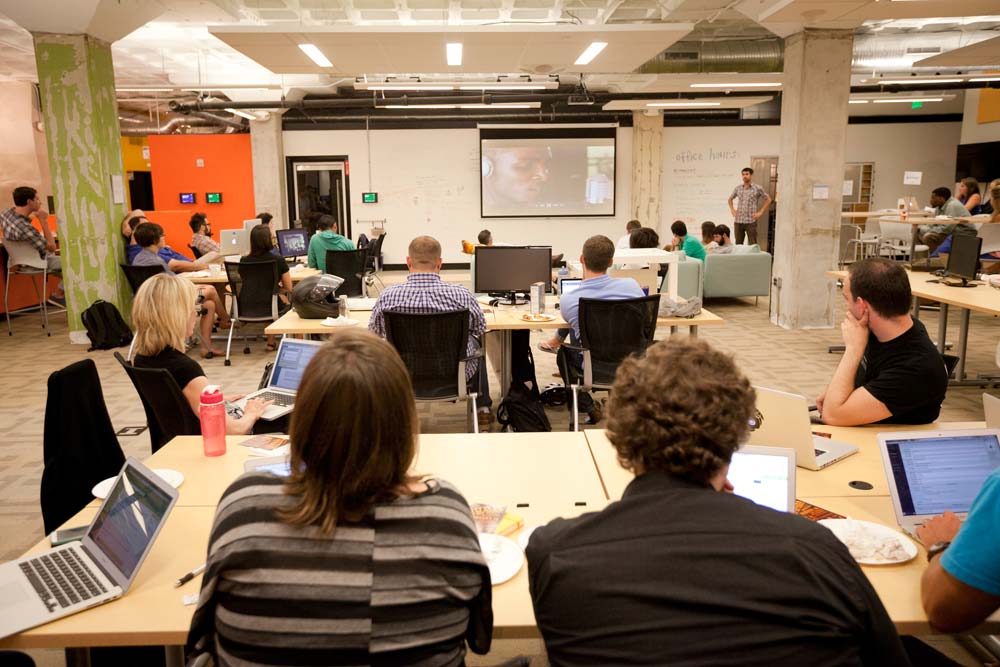The American Underground began in 2010 in a ground-floor office at the American Tobacco campus, providing inexpensive office space to entrepreneurs trying to launch their big ideas. The idea of small, cheap workspaces, month-to-month leases and a hip, intellectually stimulating work environment caught on quickly. American Underground now boasts 150 start-ups operating out of two Durham spaces and a third in Raleigh. It has proven so popular, in fact, that in late July American Underground officials announced plans to double its Main Street space.
“This could not have happened without Duke’s involvement,” says Adam Klein, American Underground’s chief strategist. “You could never build this sort of density and entrepreneurial spirit without a pipeline of great talent.”
Along with financial sponsorship, Klein notes Duke’s involvement in more subtle ways. Many start-ups are run by Duke graduates, some of whom circle back to their favorite professors for mentoring along the way. And many companies hire Duke students as employees or interns.
American Underground uses some of that $20,000 from Duke for an internship program that places Duke students with two or more companies at the same time. Many start-ups can neither afford paying interns nor provide them full-time work but by splitting their time between two or three companies, interns can get varied experiences and make a few bucks.
“And when you intern at a start-up, you aren’t pouring coffee,” Klein notes. “You really do sit in a sidecar with the entrepreneurs and work on real issues.”
Morgan Krey is one of those interns who didn’t spend the summer pouring coffee. The Duke senior worked at NeuroSpire, a Durham-based start-up with the audacious goal of re-wiring the brains of youngsters with Attention Deficit Hyperactivity Disorder using a video game controlled by brain waves.
Heady stuff for a college student? Perhaps, but Krey has always wanted a different experience. As an ambitious 12-year-old growing up in Chicago, he claimed he was 16 in order to caddy at a local golf course. An early growth spurt allowed him to continue this charade for several years, during which time he realized he enjoyed money in his pocket and the flexibility of setting his own hours.










